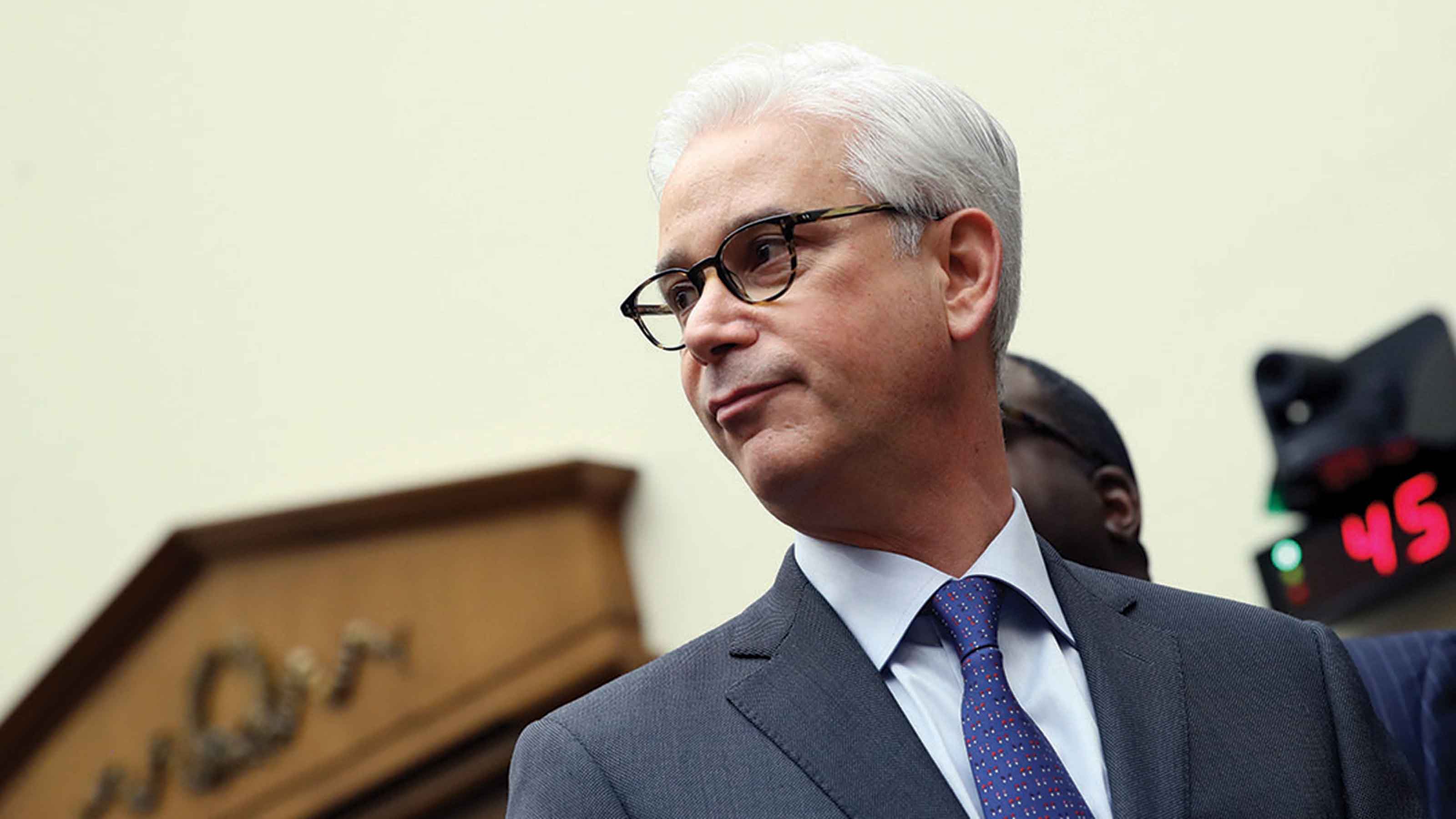Profit and prosper with the best of Kiplinger's advice on investing, taxes, retirement, personal finance and much more. Delivered daily. Enter your email in the box and click Sign Me Up.
You are now subscribed
Your newsletter sign-up was successful
Want to add more newsletters?

Delivered daily
Kiplinger Today
Profit and prosper with the best of Kiplinger's advice on investing, taxes, retirement, personal finance and much more delivered daily. Smart money moves start here.

Sent five days a week
Kiplinger A Step Ahead
Get practical help to make better financial decisions in your everyday life, from spending to savings on top deals.

Delivered daily
Kiplinger Closing Bell
Get today's biggest financial and investing headlines delivered to your inbox every day the U.S. stock market is open.

Sent twice a week
Kiplinger Adviser Intel
Financial pros across the country share best practices and fresh tactics to preserve and grow your wealth.

Delivered weekly
Kiplinger Tax Tips
Trim your federal and state tax bills with practical tax-planning and tax-cutting strategies.

Sent twice a week
Kiplinger Retirement Tips
Your twice-a-week guide to planning and enjoying a financially secure and richly rewarding retirement

Sent bimonthly.
Kiplinger Adviser Angle
Insights for advisers, wealth managers and other financial professionals.

Sent twice a week
Kiplinger Investing Weekly
Your twice-a-week roundup of promising stocks, funds, companies and industries you should consider, ones you should avoid, and why.

Sent weekly for six weeks
Kiplinger Invest for Retirement
Your step-by-step six-part series on how to invest for retirement, from devising a successful strategy to exactly which investments to choose.
On the surface, this may seem like an odd time for manufacturing companies to go on the offensive. Profits are at record levels. Inflation is low. Wages have been stagnant for almost a decade. The global recovery is lackluster. Executive pay is up sharply. And unions have been relatively meek. Other big companies haven't signaled any new push.
But the companies see it differently. Their view: The weak global economy is threatening to squelch the profit boom. The President Obama's health care plan will boost insurance expenses. Pension costs are rising. And, in the case of the steel industry, global competition is intense. So, with the job market weak, they believe now is the time to make changes.
The steelmakers have told the United Steelworkers union that they want to slash wages and benefits by more than a third from 2011 levels, and to eliminate retiree medical insurance for new hires. Caterpillar wants the International Association of Machinists to accept a six-year freeze on wages and pensions. Some Cat workers are already on strike.
From just $107.88 $24.99 for Kiplinger Personal Finance
Become a smarter, better informed investor. Subscribe from just $107.88 $24.99, plus get up to 4 Special Issues

Sign up for Kiplinger’s Free Newsletters
Profit and prosper with the best of expert advice on investing, taxes, retirement, personal finance and more - straight to your e-mail.
Profit and prosper with the best of expert advice - straight to your e-mail.
The talks between these two companies and their workers' unions are likely to be test cases, setting the stage for other big labor negotiations this year and next.
"These are the leading edge," says D. Quinn Mills, a Harvard Business School labor expert and private consultant. "What's going on here is being watched carefully by other companies, which are ready to pounce on it. If [Caterpillar and the steel manufacturers] are successful, [pressuring unions for concessions] will quickly become a trend."
Both confrontations continue wars that the two sides have been waging for decades, with the companies trying to bring their labor costs closer to those of their major worldwide competitors and the unions trying to hold on to or advance workers' wages and benefits. U.S. manufacturing began feeling competition from lower-wage foreign firms in the early 1970s and has been squabbling with unions ever since.
Caterpillar says openly that it wants to move its workers' pay and benefit levels closer to what it says are market levels. The company contends that its top-tier, most highly skilled workers are paid 35% above what the market would dictate without union contracts. As for steelworkers, they are among the highest paid in U.S. manufacturing industries.
Right now, the employers have most of the leverage. Their balance sheets are strong. They have plenty of unused capacity. They can take a prolonged strike without fear of a backlash by stockholders. And they can still shift some production abroad -- as Caterpillar did following a long strike in the mid-1990s.
By contrast, the unions aren't in a good position to sustain strikes. In today's weak job market, high-wage jobs are hard to get. It's easy for companies to hire replacement workers. (Indeed, Caterpillar has already done so.) And Washington isn't likely to intervene in contract negotiations.
Is there real evidence that Caterpillar is facing serious competitive threats? Richard Hurd, a professor of industrial relations at Cornell University, says no. Rather, he contends, the heavy-equipment manufacturer is trying to take advantage of current conditions to pare back its pay scales for the longer run.
"What Caterpillar is doing is copying the pattern that they see in public sector unions," where states are successfully forcing labor leaders to cap -- or even reduce -- the cost of wages, benefits and pensions, Hurd says. "They now have the ability to push [down] the wage rates that the unionized sector has," he says.
The lopsided advantage enjoyed by the companies presents a difficult challenge for union leaders. They'll have to walk a thin line -- meeting some of management's key demands in order to preserve remaining jobs and successfully selling any new wage-and-benefits package to their members.
Moreover, the negotiations come at a time when increasing numbers of workers whose unions negotiated generous pensions and old-age health benefits in the 1970s and 1980s are approaching retirement and will soon be eligible to claim them.
And deadlines are approaching. Although the Caterpillar negotiations could continue for months, steelworkers’ contracts with the large steelmakers expire at the end of August. Meanwhile, the record profits that U.S. companies have enjoyed over the past few years appear to be ebbing as the dollar's value rises and demand for industrial products wanes.
That makes for high-stakes negotiations for both the companies and the unions -- with possibly serious implications for the labor picture in the next several years. For the first time in recent memory, "you have the makings of strikes and work stoppages," Harvard's Quinn Mills says. "It's a real challenge for both sides."
Profit and prosper with the best of Kiplinger's advice on investing, taxes, retirement, personal finance and much more. Delivered daily. Enter your email in the box and click Sign Me Up.

-
 How Much It Costs to Host a Super Bowl Party in 2026
How Much It Costs to Host a Super Bowl Party in 2026Hosting a Super Bowl party in 2026 could cost you. Here's a breakdown of food, drink and entertainment costs — plus ways to save.
-
 3 Reasons to Use a 5-Year CD As You Approach Retirement
3 Reasons to Use a 5-Year CD As You Approach RetirementA five-year CD can help you reach other milestones as you approach retirement.
-
 Your Adult Kids Are Doing Fine. Is It Time To Spend Some of Their Inheritance?
Your Adult Kids Are Doing Fine. Is It Time To Spend Some of Their Inheritance?If your kids are successful, do they need an inheritance? Ask yourself these four questions before passing down another dollar.
-
 Airbnb Host Tells What It's Like
Airbnb Host Tells What It's LikeBusiness Costs & Regulation This Denver pharmacist began booking her ski condo a few months after the pandemic hit.
-
 Tough Times for a Family Business
Tough Times for a Family BusinessBusiness Costs & Regulation His dry-cleaning operation was rocked by the pandemic, but he is staying optimistic.
-
 IRS Gives Truckers a Tax Break in Response to the Colonial Pipeline Shutdown
IRS Gives Truckers a Tax Break in Response to the Colonial Pipeline ShutdownTax Breaks The tax penalty for using dyed diesel fuel for highway use is temporarily suspended.
-
 Reliving a Harlem Renaissance
Reliving a Harlem RenaissanceBusiness Costs & Regulation After a tough winter, two sisters look forward to reviving their restaurant’s business.
-
 Add a VPN to Surf the Internet Safely
Add a VPN to Surf the Internet SafelyTechnology To help you fight identity theft, consider adding a VPN.
-
 Stephanie Creary: Making the Case for Diversity on Corporate Boards
Stephanie Creary: Making the Case for Diversity on Corporate BoardsBusiness Costs & Regulation Adding underrepresented voices can improve a company’s bottom line.
-
 How We Lose When We Overlook Black Talent
How We Lose When We Overlook Black TalentBusiness Executives Comments from Wells Fargo CEO Charles Scharf (pictured) reflect a culture that tramples on clients’ trust and limits opportunities for people of color.
-
 Retirees, Create An Emergency Fund for Rental Property
Retirees, Create An Emergency Fund for Rental PropertyBusiness Costs & Regulation Build a cushion to protect your income from an unforeseen crisis.
